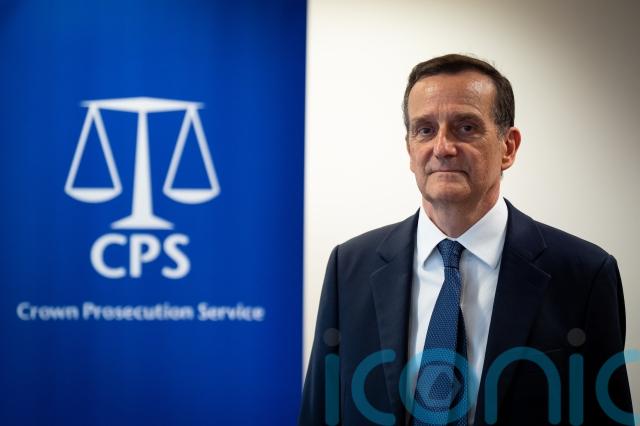
The deputy national security adviser believed he had provided enough evidence to support the prosecution of two alleged Chinese spies, MPs and peers have heard.
The case against Christopher Cash, a former parliamentary researcher, and Christopher Berry – who both deny wrongdoing – collapsed in September.
The Crown Prosecution Service (CPS) said it did not have enough evidence to secure a conviction.
Westminster scrutiny has focused on witness statements made by deputy national security adviser Matt Collins, who had declined to say that China posed “a threat to national security” as it did not reflect the policy of the then-Conservative government.
Giving evidence to Parliament’s Joint Committee on the National Security Strategy on Monday, Mr Collins said he had been “surprised” to learn on September 3 that the case was going to be dropped.
He told the committee: “I was advised throughout by external counsel, and I discussed several times with my legal team, whether we felt we had given enough.
“It was his advice that he thought we had.”
Mr Collins also said he had been “very clear” with the CPS that he would say that “China poses a series of threats to the UK’s national security”.
He added: “I believe what they were asking me to say was to use the generic term that China is a threat, or China is an active threat, which is not in line with government policy at the time.”
Earlier, the committee had heard from the director of public prosecutions, Stephen Parkinson, who said the evidence Mr Collins provided would have seen the case thrown out of court halfway through.
Mr Parkinson said Mr Collins’ evidence did not provide evidence China was an “active threat” to national security “in terms” asked for, and lawyers for the defence would therefore have been able to successfully argue there was “no case to answer”.

But Mr Parkinson declined to lay responsibility for the case’s collapse with anyone, saying it was not “a question of blame”.
He said: “The responsibility of prosecutors is to place cases before the court on the basis of sufficient evidence to secure a conviction.
“And ultimately, the issue in this case is that we were not able to provide the evidence to sustain the case in respect of one essential element, which was the element that China was an enemy, as was required by the statute.”
Mr Collins initially provided a witness statement in 2024, on the strength of which the CPS decided to charge Mr Cash and Mr Berry.
But following a judgment later that year on the definition of an “enemy” according to the Official Secrets Act, prosecutors asked him for more evidence, hoping that he would describe China as a “threat” or “active threat” to national security.
Mr Collins provided two further witness statements in which he set out the threats China posed in cyberspace and to the UK’s democratic institutions, but did not describe Beijing as a “generic” threat.
One of those witness statements also included language reflecting the current Labour government’s policy of pursuing a positive trading relationship with China, but Mr Parkinson denied that this had undermined the prosecution.
He said: “To be clear, the problem has always been that those three witness statements were insufficient to enable us to prove the case.”
Asked why he had included the current Government’s policy in his witness statement, Mr Collins said he had been advised to do so by counter-terrorism police “for fear that there would be a wedge driven between my witness statements and the new Government’s policy”.
Mr Collins also denied that he had discussed his second or third witness statements with ministers or special advisers, saying he had been told that to do so “may pervert the course of justice”.
He also insisted that a meeting on September 1, shortly before he was informed the case was going to collapse, had discussed his evidence in the case.
The meeting, which was also attended by civil servants and national security adviser Jonathan Powell, has been the focus of significant speculation in Westminster.
But both Mr Collins and Cabinet Secretary Sir Chris Wormald said it had only discussed “different scenarios” of Britain’s relationship with China “and how to handle them”.
Mr Collins said there had been “at least four lawyers in the room who ensured that there was no discussion about the evidence that was going forward in the case”.
On Wednesday, the committee will hear from Attorney General Lord Hermer and Chancellor of the Duchy of Lancaster Darren Jones.
Subscribe or register today to discover more from DonegalLive.ie
Buy the e-paper of the Donegal Democrat, Donegal People's Press, Donegal Post and Inish Times here for instant access to Donegal's premier news titles.
Keep up with the latest news from Donegal with our daily newsletter featuring the most important stories of the day delivered to your inbox every evening at 5pm.